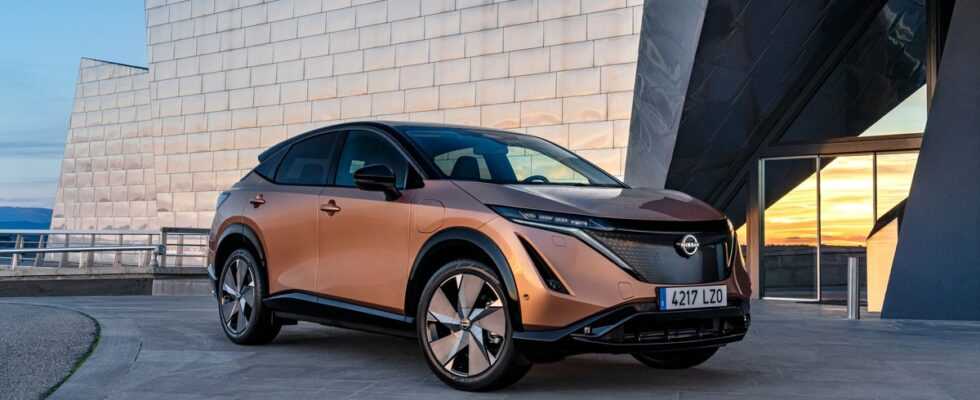Nissan wants to be quick with e-cars: With the Leaf model, the Japanese manufacturer has had a Stromer ready for a long time, but it was not a resounding success. Now you want to set the course and rely fully on electric drive – with one exception.
Nissan is getting out: E-cars have priority over combustion engines
The next carmaker is serious: Nissan wants to become a manufacturer of electric cars and turn away from the burner. So far, the Japanese manufacturer has only offered a very small, electrified car portfolio. In the summer, the Nissan Ariya will be the first step on the market that should change that.
For what is only its second e-car, Nissan is relying on the currently proven principle: a comfortable e-SUV with several equipment variants, maximum range of 500 km according to the WLTP standard and fast charging function. Among other things, customers can choose between a 63 or an 87 kWh battery and front or all-wheel drive, the latter with a dual motor.
But the Ariya should only be the first step. As has now become known, Nissan is discontinuing the development of new combustion engines (source: Nikkei Asia). One The only exception is in the USA where work is to continue on special combustion engines for the pick-ups that are popular there. Europe, Asia, the Japanese home market – everything is being converted to electric. Most of the investment in research should also flow into electric cars.
It really is, especially when compared to the domestic competition from Toyota and Honda a drastic step. But the Japanese manufacturers – especially Toyota – have shown that the decision to go for a pure electric car is not necessarily easy.
Retreating on a small scale: Hybrids will continue to be built
This is also the case at Nissan: Although they no longer want to develop new combustion engines, they do want to improve existing engines in the future. Hybrid vehicles are not depreciated.
So far, Nissan’s first e-car, the Leaf, is alone in the passenger car segment:
The reason for Nissan’s decision should be the internationally stricter government regulations. So the prevailing view at Nissan is that the Euro 7 standards in the EU from 2025 mean the end for new petrol or diesel engines anyway. The development of motors that conform to standards is not seen as profitable.
At the same time, the e-car market offers great potential. In 2033, the world market should exceed that for combustion engines by 20 percent, according to Nikkei. After all, a tenfold increase in the next twelve years.
